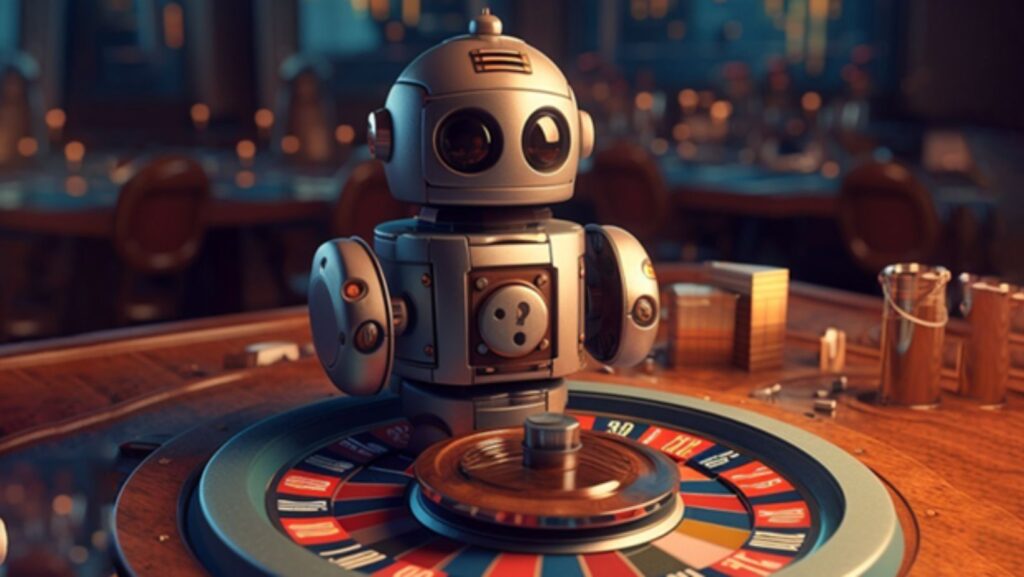Roulette is a game of chance, a whirling wheel and a rebounding ball that appears entirely random. Players have tried to crack its code for centuries with complicated systems, hot-and-cold number methods, and even mechanical contraptions. And now, there is someone new sitting at the table: machine learning.
Can this powerful technology, deployed to fuel cars, identify illness, and recommend your next episode of Netflix, perhaps forecast the outcome of a roulette spin? It’s a possibility that reads like science fiction. But in an age obsessed with data and algorithms, not so far-fetched.
Let’s dive into the thrilling intersection of artificial intelligence and one of the world’s oldest casino games.
The Allure of Predicting the Unpredictable
At face value, roulette seems invincible. The wheel has either 37 (European) or 38 (American) pockets. Wherever the ball lands, it’s a matter of chance—or so they claim.
Here is where machine learning enters. In contrast to human moves governed by superstition or defective logic, machine learning algorithms search for trends in large data sets. The more data they process, the more precise they get—at least in theory.
The big question is: Are such systems able to find patterns in a game that had been coded randomly?
The Physics of the Spin
One of the roulette secrets that is less widely known is that it’s not entirely random in the physical world. Deviations in the physical wheel, human bias in the dealer’s spin, or areas where the ball drops create tiny patterns in the long term. These mistakes are usually too small for humans to catch, but maybe not so for a very well-trained machine learning algorithm.
Back in the 1970s, some physics students famously built a wearable computer to predict where the ball would land using physics equations. They did fine, though the casinos quickly got wise. Now, with smartphones and machine learning, that idea has been developed into machine learning models trained on spin outcomes.
The goal? Detect physical bias, analyze dealer patterns, and forecast landing zones.
What Machine Learning Actually Does
Machine learning isn’t looking into the future. It’s looking at trends and likelihoods of the past. If you feed a machine with thousands of real roulette outcomes—especially from one table—it could, in theory, identify minor imbalances:
- Does the ball drop more in certain areas?
- Do particular numbers repeat more with particular dealers?
- Are there mechanical biases on that wheel?
Armed with this knowledge, an algorithm might produce more-than-average guesses. Not enough to win every game, but sufficient to tip the odds—slightly—in the direction of the player.
The Limits: Casinos Aren’t Stupid
Contemporary casinos are well aware of these techniques. They respin wheels, rotate dealers, and monitor outcomes to avoid detectable bias. The majority of games are now computerized or have added additional degrees of randomness to frustrate prediction attempts.
Even on internet websites, such as those visited using the official 1xbet app apk download, roulette outcomes are calculated with licensed Random Number Generators (RNGs). These systems offer real randomness, making it virtually impossible for a machine to detect patterns. In these environments, machine learning comes to an impasse.
In addition, creating a good model takes data—plenty of it. Obtaining that data from a live or internet casino undetected is not easy. And even if a model begins to perform, casinos can legally prohibit players who win too often with the help of outside software.
Machine Learning as a Learning Tool
Though AI cannot promise roulette wealth, it can be of value nonetheless. Casino developers and number crunchers employ roulette simulations to try to hone their machine learning algorithms. It’s a safe, deterministic environment—perfect for honing data science skills without the risks of real-life repercussions.

Some players also use diminished AI systems to analyze their betting behavior. They identify emotional betting habits, risky play, or overconfidence. In this sense, machine learning may be able to help players gain a better understanding of themselves, though without helping them beat the house.
Conclusion: The Dream vs. the Data
Machine learning is robust. But roulette is a game designed to be indeterminate. The greatest artificial intelligence can do is find minute edges in imperfect systems, and casinos do their best to eliminate those imperfections.
All the same, the concept isn’t entirely bad. To inquisitive minds, it gives a glimpse into how information can play with probability. To programmers, it’s a fun problem. And to game players, it’s a reminder that technology, while marvelous, cannot redefine the law of chance.
Can machine learning help you beat roulette? Sometimes, if the right conditions are met. But as long as the wheel is spun level, luck will always remain the best friend of the house.



